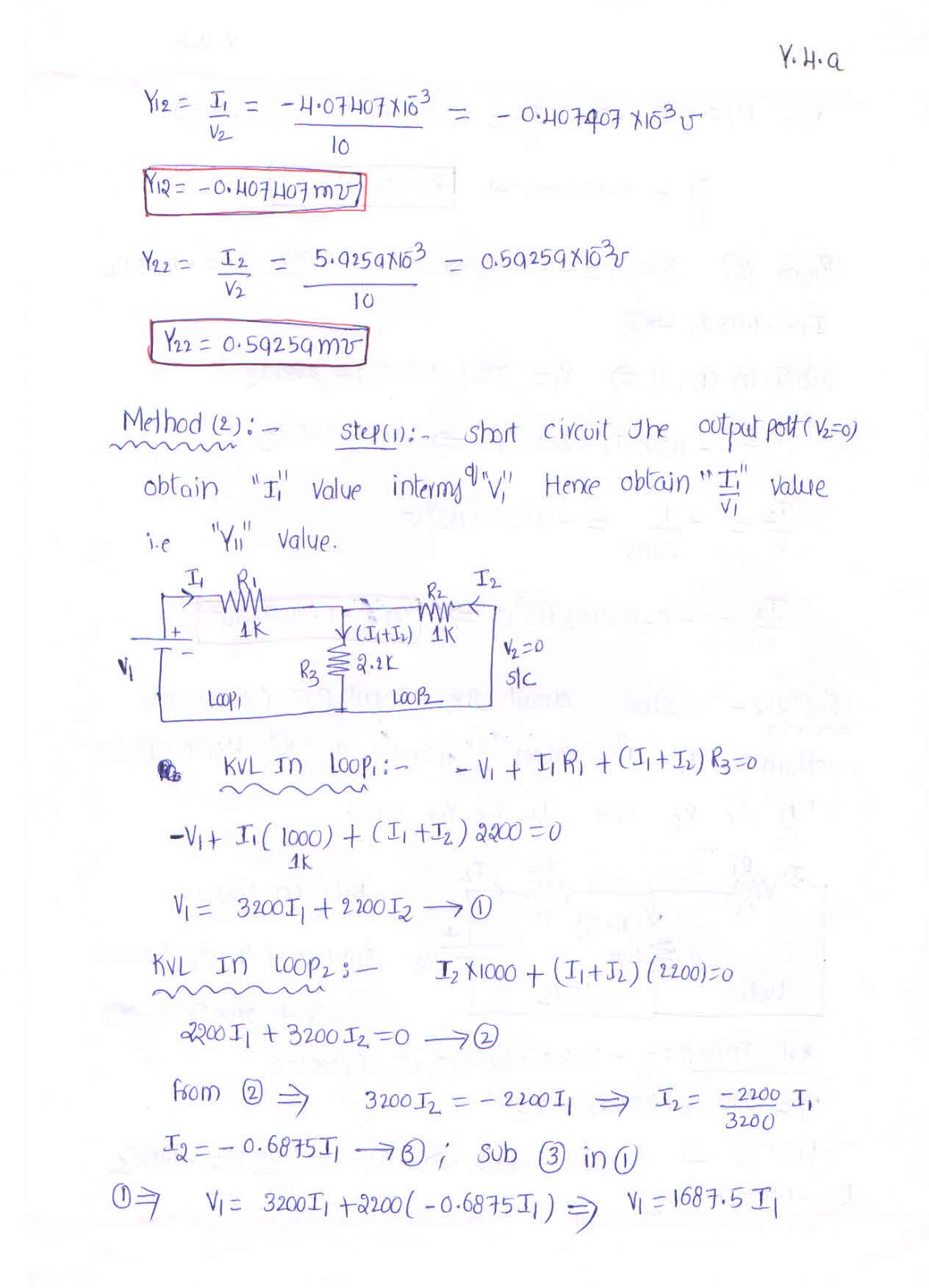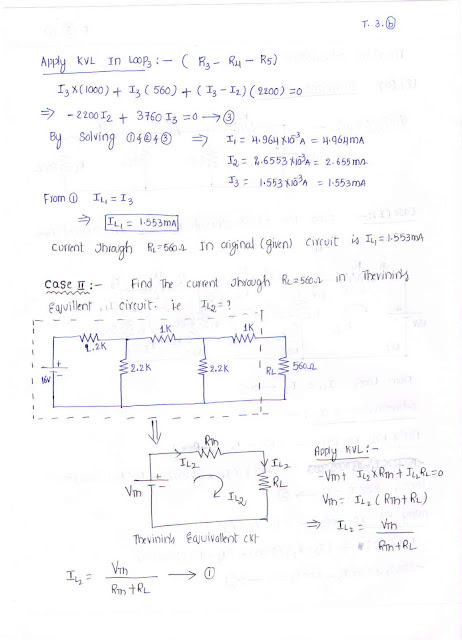Friday, 17 January 2014
Thursday, 9 January 2014
PDC UNIT WISE BITS
PDC
UNIT-1(Linear
wave shaping)
1. The waveform which preserves its form when transmitted
through a linear network is a___________. [ b
]
(a)Sine wave (b) Step signal (c) impulse
signal (d) ramp signal
2. An RC high pass circuit has R= 1kΩ and C=0.5 μF. Its
lower cutoff frequency is [ b]
(a) zero (b) 318.3 Hz (c) 1kHz (d) infinity
3. For a integrator, if input is square wave then the output
waveform is _____ [ a]
(a) Impulse (b) Sawtooth wave (c) Triangular wave (d) Both a and
c
4. A ringing circuit has a quality factor Q=24. This
circuit will ring for how many number of cycles? [ c]
(a) 24 (b) 12 (c) 8 (d) 6
5. The rise time of the output of a low pass RC circuit is
given by [c ]
(a) 2.2 RC (b) 0.35/fH (c)
2.2τ (d) all the above
6. What is the response of step input to a high pass RC
circuit [ a ]
a) V e-t/RC b)
V (1- et/RC) c) V et/RC d)
V(1- e-t/RC )
7. When RC high pass circuit act as a differentiator? [ a]
a) RC<<T b) RC>>T c)RC=T d)RC=0
8. What is the name of the circuit which converts square
wave in to spikes [ c]
a) Low pass RC b) Bi stable multi c) High pass RC d) Monoshot
section II: fill in the blanks
9. For DC input signal capacitor C acts as a open circuit
10. The average value of the output value of an RC high pass
circuit is Zero
11. In RC integrator circuit the output is taken across capacitor
12. -------------is
the condition for an RC high pass circuit to acts as a differentiator.
13. Time constant of RL circuit is L/R
14. The
process of converting pulses into spikes is called Tilt
15. Write
the relationship between time constant and tilt? Linear wave shaping
UNIT-2 : Non linear wave shaping
1. A comparator is a basic building block in a system used
to analyze the -------- distribution of noise generated in active device
[ b]
a) Both frequency and phase b) Amplitude
c) Phase d) Frequency
2. Zener diode has ---------- temperature coefficient
[ b]
a) sometimes positive and sometimes
negative b) Only negative.
c) Both positive and negative d)
Only positive
3. A clamping circuit is also called as ____________.
[ c ]
(a) dc restorer (b) dc reinserter
(c) both a and b (d) none of the above
4. A clipping circuit consists of ___________. [ c]
(a) Resistor (b) Diode (c) both a
and b (d) c and capacitor
section II: fill in the blanks
5. The clamping theorem is given by Af/Ar=Rf/R
6. When the diode is forward biased it acts as closed switch
UNIT-III:
SWITCHING CHARACTERISTICS OF DEVICES
1.
Common base configurations is little used because [ C]
a) High voltage gain b) High current gain c) It has low input
impedance d) High input impedance
2. The Vce (sat) of Si n-p-n transistor at 27 c is [ B ]
a) 0.7 v b) 0.3 v c) 0.8 v d) 0.1 v
3. Turn off time of the transistor is = ------- [A ]
a) toff =tf +ts b) toff =tf +ton c) toff
=tfd +ts d) toff =ton +ts
Unit-IV: multivibrators
Section-I:
Multiple choice questions
1. Monostable multivibrators generates [ b ]
a) Pulse wave form b) Ramp signal
c) Sine wave d) Square wave
2. A sinusoidal waveform can be converted to a square
waveform by using _______ [ c ]
(a) Astable multivibrator (b) Bitable multivibrator (c ) Schmitt
trigger (d) None of the above
3. A Schmitt trigger is a __________. [ a]
(a) counter (b) Voltage to frequency converter (c)
Comparator (d) None of the above
Section-I: Fill in the blanks:
1. A bistable multivibrator is used for 0.5MHz
2. The time constant of a monostable
multivibrator is 2.2τ = 2.2RC = 0.35/f2
3. _______________ circuit is used to
generate the sequence of pulses which are regularly spaced in time
4. No of quasi stable states of astable
is 2
5. The expression of pulse width for monostable multivibrator
is (T/2RC) X 100
Prepared by
G.swathi
ECA unit wise previous bits
ECA
JNTUH OBJECTIVE EXAM
UNIT-1: (SINGLE STAGE
AMPLIFIERS)
SECTION-I : Choose the
correct answers
1. Which of
the following amplifier has high power gain [ b]
(a) CB (b) CE (c) CC (d) both CB and CE
2. The slope
of ac load line is _________ that of dc load line. [b ]
(a) same as (b)more than (c) less than (d) None of
the above
3. In a RC
coupled amplifier, which of the following component is mainly responsible for
harmonic distortion of the signal [ a]
(a) Transistor (b) Biasing resistor (c) coupling
capacitor (d) power supply
4. The voltage
gain of well designed single stage CB amplifier is essentially determined by ac
collector load and [C ]
A. Emitter resistor Re B. ac alpha C. Input
resistance emitter diode D.ac beta.
5. The emitter
of a CE amplifier has no AC voltage because of the [c ]
A. DC voltage unit B. Bypass Capacitor C. Coupling
capacitor D. load resistance
6. Typical
value of hie
is [ ]
A. 1k B. 25k C.50k D.100k
SECTION-II: Fill in the
blanks
7. The parameter h22 has units of SEIMENS
8. A CC Amplifier has highest current
gain but lowest power gain
9. The current gain of single stage CE amplifier is
nearly equal to Beta
10. The input impedance Ri of a CE amplifier in
terms of hie,
hoe,
hre and
load resistance. ___________________.
11. The phase difference between output and input
voltages of a CB amplifier is 0
12. According to Miller’s theorem, the feedback
capacitance when referred to input side with gain A is _Cin = C(1-A)
13. Trans conductance gm in hybrid - π model is
defined as gm = ΔIc / ΔVBE when VCE=Constant
UNIT-2: (Multi stage amplifiers)
1. The most desirable feature of transformer
coupling is its [c]
A. Higher voltage gain B. wide frequency range C.ability to
provide impedance matching D. ability to eliminate hum from the output
2. For matching a circuit of output impedance
200Ω with a load of 8 Ω the turn ratio of the two winding transformer should be
[d ]
A. 25 B.1/25 C.1/5 D.5
3. In the initial stages of a multi stage
amplifier, we use [a ]
(a) RC coupling (b) transformer coupling (c) direct coupling (d)
None
4. The bandwidth of a single stage amplifier is
___ that of a multi stage amplifier. [ a ]
(a) more than
(b) less than (c) same as (d) none
5. The Darlington pair consists of the following
two stages [ d ]
(a) CE,CC (b)CE,CB (c)both CE (d) both CC
6. Transformer
coupling is generally used when RL is Small
7. In a two stage cascaded amplifier, each
of two cascaded stages has a voltage gain of 30 then the overall gain is _900
8. Why do we go
for multi stage amplifiers? for high gain
9. Direct coupled amplifiers are especially suited for amplifying extremely LOW frequency signals.
10. The DC
resistance of transformer coupling is
Low so it is more efficient
UNIT-3 (BJT
amplifiers-frequency response)
1. The gain bandwidth product of a two stage
amplifier is [ c ]
(a) same as that of single stage (b)
greater than that of single stage
(c) less than that of single stage (d) product of two gain bandwidth
products of each stage
2. How does the amplifier
behave for high frequencies? [ b ]
(a) high pass filter (b) low pass filter (c) band pass filter (d) None
3. The bandwidth of an
amplifier can be increased by [b ]
A. decreasing the capacitance of its
bypass capacitors B.minimizing the stray capacitance
C.increasing the input signal frequency D. cascading it
4. Lower cutoff frequency of an
amplifier is primarily determined by the [D ]
A.Internal
capacitance of the active device
B.Stray
capacitance between its wiring and ground
C.ac beta(β)
value of its active devices
D.Capacitances
of coupling and bypass capacitor
5. The main reason for the
variation of amplifier gain with frequency is [A ]
A. the presence of capacitance internal
and external B. due to interstage transformation
C. the
logarithmic increase in its output power D. miller effect
6. The alpha
(α) cut off frequency of a transistor is higher
than is beta (β) cut-off frequency
7. The alpha (α) of the transistor Decreases with the
increase in frequency
UNIT-IV (MOS
amplifiers)
1. A source
follower using FET usually has a voltage gain of _____. [b ]
(a) -1 (b) >100 (c) about -10 (d) less than 1 but
positive
2. For the
operation of enhancement only N- Channel MOSFET , value of gate voltage has to
be [ a]
A. High positive B. high negative C. low positive D.
zero
3. In depletion mode and N- Channel DE MOSFET conducts
with Vgs is
ZERO
4. A MOSFET can be easily destroyed by any Stray voltage on
its gate.
5. The positive gate operation of a N- Channel
Depletion MOSFET is known as Enhancement mode.
6. Cascade amplifier is combination of CB-CE
7. CD
amplifieris
called as source follower
8. CS amplifier produces a phase shift of 180˚
Prepared By
KAVITHA
Sunday, 5 January 2014
2-2 academic calender
2-2 academic calender
|
|
from
|
to
|
No. of days
|
|
Commencement of class work
|
09-12-2013
|
|
|
|
I spell of instructions
|
09-12-2013
|
07-02-2014
|
8 weeks
|
|
I mid examinations
|
10-02-2014
|
12-02-2014
|
3 days
|
|
II spell of instructions
|
13-02-2014
|
05-04-2014
|
7 weeks 3 days
|
|
II mid examinations
|
07-04-2014
|
09-04-2014
|
3 days
|
|
Preparation and practical
|
10-04-2014
|
19-04-2014
|
9 days
|
|
End semester examinations
|
21-04-2014
|
03-05-2014
|
2 weeks
|
|
Supplementary examinations
|
05-05-2014
|
17-05-2014
|
2 weeks
|
Subscribe to:
Comments (Atom)







































